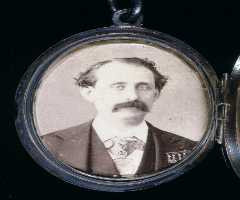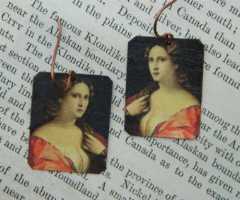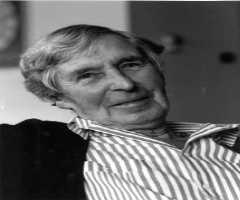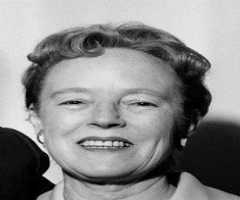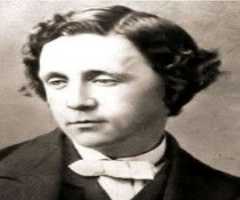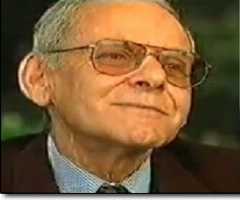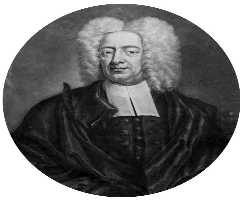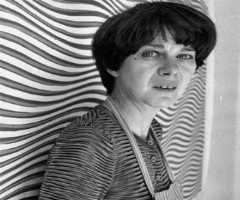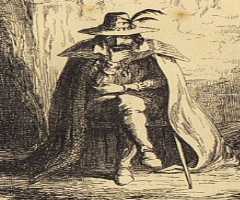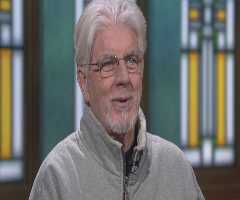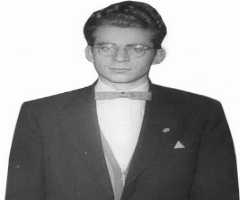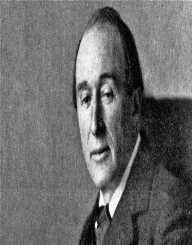
Also Known For : Songwriter
Birth Place : Yorkshire, England, United Kingdom
Died On : June 10, 1934
Zodiac Sign : Aquarius
Frederick Delius Biography, Life, Interesting Facts
Frederick Delius was an English composer who stood against all the odds in pursuing his music career. Born on January 29, 1862, he his family wished he became part of their mercantile business but, Frederick Delius also had his own aspirations. Sent to Florida in the United States to manage an orange plantation, Frederick Delius abandoned his post to pursue his call, which was music, hence returned to Europe to pursue it. With the influence of African-American music, while living in Florida, Frederick Delius started composing his own works. During this period, Frederick Delius undertook a formal study in music in Germany to perfect his skills and soon afterward, made music composition, a full-time career.
Frederick Delius made his professional debut in 1886 in Paris but achieved his first success in Germany, where his works were promoted by Hans Haym and other conductors in the 1990s. It was, however, not until 1907, that Frederick Delius was able to break into his native land, England, musical circles with the help of Thomas Beecham. His early works were influenced by the American music during his short stay there and also works of European composers like Richard Wagner and Edvard Grieg.
Frederick Delius was, however, able to develop his own unique style, inspired by his individual orchestration and the use of chromatic harmony. His career was cut short as Frederick Delius became paralyzed and later blind as a result of syphilis contracted during his early years in Paris. However, with the help of an amanuensis, Eric Fenby, Frederick Delius was able to complete most of his compositions between 1928 and 1932.
Early Life
Fritz Theodore Albert Delius was born to Julius Delius and Elise Pauline, nee Kronig, on January 29, 1862, in Bradford, Yorkshire, England. Frederick Delius was the second child of four. The family was music lover therefore famous musicians like Carlo Alfredo Piatti and Joseph Joachim were usually invited to perform for the family. This was what would influence, the young Delius future career path as a musician. Growing up he fell in love with the music of Chopin and Edvard Grieg. Frederick Delius was taught how to play the violin by Mr. Rudolph Bauerkeller of the Halle Orchestra and furthered it under Mr. George Haddock of Leeds.
Frederick Delius later learned the piano, and it was through the piano piece, a Waltz by Chopin that would set the basis for his musical career. He received education from at Bradford Grammar School from 1874 to 1878. Frederick Delius then continued at the International College at Isleworth from 1878 to 1880. Frederick Delius was not academically inclined in school but found it convenient to attend concerts and opera during college.
Career
As the family was very successful in the wool business, Frederick Delius father wished, he became part of the family business and tried in many ways to convince him into doing so. His father first appointed him as the representative in Stroud in Gloucestershire. Frederick Delius did fairly well so was later sent to Chemnitz, but he left his post for trips in musical centers in Germany, where Frederick Delius also studied music under Hans Sitt. As a result, his father sent him to Sweden but once again put his interest in music ahead of being in commerce. His next destination was in France to represent the business, but Frederick Delius put up the same business. His father later released, Frederick Delius was not interested in the family business and would not succeed in doing so, so sent him to the United States to manage an Orange plantation.
Florida
Frederick Delius arrived in Florida in the spring of 1884, where he lived on a plantation at Solano Grove. Even there, he continued to pursue music, and with the help of Thomas Ward, Frederick Delius learned composition and counterpoints. As Frederick Delius grew acquaintances, his commitment to the plantation began to wane with his focus on pursuing a musical career. While there, Frederick Delius became influenced by the music style here and his first composition, a polka for piano, Zum Carnival was published. He later left Solano Grove for Danville, Virginia, putting the plantation someone’s care to pursue music fully. Frederick Delius then started giving piano, violin, theory and composition lessons in English, French, and German.
Leipzig And Paris
Realising his Delius was solely interested in music, his father now agreed to allow him to pursue the career, paying for him to formally study music. He left the United States to Germany, where Frederick Delius enrolled at the Conservatoire in Leipzig in 1886. While there, Frederick Delius resumed his studies under Hans Sitt. Frederick Delius later met composer Edvard Grieg in Leipzig who notice Delius musical potential and would accord him the needed help. Hans conducted Delius Florida Suite for an audience of three, Edvard Grieg, Christian Sinding and Delius himself in 1888.
That same year, he left Leipzig for Paris where his uncle, Theodore, supported him socially and financially. There, Frederick Delius made friends with writers and artists including, Edvard Munch, Paul Gauguin, and August Strindberg. The piano scores of his first two operasIrmelin and The Magic Fountain were organized by French musician, Florent Schmitt.
However, Frederick Delius did not make friends with many French musicians, hence; his music was not popular in France. Delius biographer, Diana McVeagh, personality, and attractiveness got him involved with some women, and that made him contract syphilis, which would later be detrimental to his health. His compositions in France include the symphonic poem Paa Vidderne, Over the Hills and Far Away and orchestral variations, Appalachia.
Success
In 1897, Delius built a strong relationship with conductors Fritz Cassirer, Hans Haym and Alfred Hertz at Elberfeld and with Julius Buths in Dusseldorf as well as other Germans who supported his music. On November 13, Hans Haym conducted Delius, Over the Hill and Far Away under the German name Über die Berge in die, Ferne, becoming the first time, Delius music was heard in Germany. Hertz also gave a Delius concert in St James Hall, London in 1899 and among the compositions includedOver the Hills and Far Away, excerpts from the opera Koanga and a choral piece, Mitternachtslied. He did several other works in Germany, surging his reputation in that country.
In 1907,.Henry Wood revised Delius’s Piano Concerto, and Cassirer also did same concerts in London where he presented Delius Appalachia and Beecham’s New Symphony Orchestra. That was the first time Beecham heard a composition of Delius and since became an ardent supporter Delius and conducted his works.
Last Years
Delius health began to deteriorate, and his eyesight was affected in that he started to dictate to his wife, Jelka as he tried to compose new works. He later had help from Eric Fenby, his admirer who offered his service without any remuneration. From 1928 to the next five years, the two would work together on new compositions and revise his earlier works. Works produced around this time include Cynara, A Late Lark, A Song of Summer, the Irmelin Prelude and Idyll among several others.
Personal Life
Frederick Delius was married to Jelka Rosen, a German artist in 1903. The couple first met in 1897, became friends and their passion for the music of Grieg and works of philosopher Friedrich Nietzsche drew them together as a couple. The couple had no children. Frederick Delius was said to be unfaithful, but Jelka continues to live with him. Delius died on June 10, 1934, at age 74. Frederick Delius was initially buried in a local cemetery in Grez, but Jelka later moved the remains to England to be reburied at St Peter’s Church, Limpsfield in Surrey in 1935. Jelka also died on May 28, 1935.
More Composers
-
![Louis Moreau Gottschalk]()
Louis Moreau Gottschalk
-
![Francesca Caccini]()
Francesca Caccini
-
![Brian Ferneyhough]()
Brian Ferneyhough
-
![Arthur Sullivan]()
Arthur Sullivan
-
![Henry Purcell]()
Henry Purcell
-
![Michael Tippett]()
Michael Tippett
More People From England
-
![Sarah Ferguson]()
Sarah Ferguson
-
![Alma Reville]()
Alma Reville
-
![Edward, Earl of Wessex]()
Edward, Earl of Wessex
-
![Roland Orzabal]()
Roland Orzabal
-
![Simon Cowell]()
Simon Cowell
-
![Charles Pelham Villiers]()
Charles Pelham Villiers
